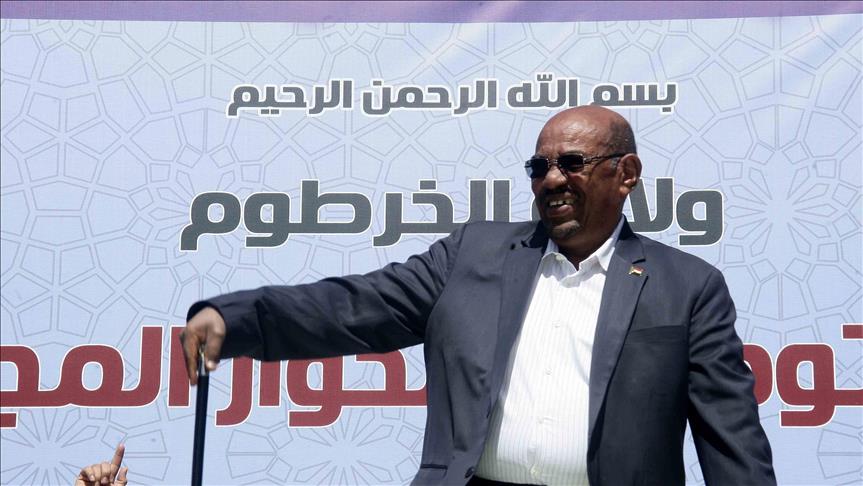
Ankara
By Mustapha Darboe
BANJUL, Gambia
A leading human rights watchdog in Africa has sought explanation from South Africa’s delegation to the African Commission on Human and Peoples’ Rights on why the rainbow nation failed to arrest Sudan’s Omar Al Bashir.
Sudanese President Omar Al Bashir is wanted by the International Criminal Court for genocide, crimes against humanity, and war crimes in Darfur, and countries have been asked to facilitate his arrest and extradition.
Bashir travelled to South Africa for an African Union meeting last year but the nation, a signatory to the Rome Statue, refused to arrest him, sparking widespread criticism.
Sahli Fadel Maya, commissioner and rapporteur on refugees, asylum seekers and internally displaced persons and migrants in Africa at the African Commission on Human and Peoples’ Rights, asked the South African delegation after it presented its human rights report to the commission at a meeting in Banjul.
“South Africa is part of the Rome Statue thus it was their obligation to arrest Al Bashir… It has failed to comply with its international obligations by allowing him to leave South Africa,” Commissioner Maya later told Anadolu Agency in an interview.
The South African government has been accused of deliberately letting Bashir leave even after it was asked by the Supreme Court not to allow him out of South Africa.
South African President Jacob Zuma has called for African countries to pull out of the international court.
Commissioner Lawrence Mute, chairman of the commission’s special mechanism dedicated to fighting torture and other forms of ill-treatment in the continent, has also asked for official clarification on whether South Africa is leaving the ICC or not.
“Are you leaving or aren’t you leaving the ICC?” Mute asked the South African delegation following its report presentation.
The South African deputy minister of justice and constitutional development, John Jeffery, who led the delegation to the commission, later said that they are considering their position because the court discriminates against Africans.
“The difficulty is that many powerful countries did not sign the Rome statue… It means there are double standards,” Jeffery said ahead of their response to questions raised by the meeting.
“We are considering our position, as are many other African governments.”
However, Maya said the national judicial systems in Africa are not strong enough to do the job that ICC does, though she wouldn’t deny “most of the people it tries are Africans”.
“In principle if you look at the mandate of the ICC, it is complementary… The primary responsibility of prosecution is with the governments in countries where crimes are committed,” she told Anadolu Agency.
“So we have to reinforce our national courts to be able to take our own cases before it goes to the ICC though the fact is that our national judicial systems are not strong enough to do that… So my expectation is to see an African court that has a criminal competence for Africans to be able to prosecute their own people.”
Corlewtt Letlojane of the Human Rights Institute of South Africa has criticized his government’s threat to pull out of the international court, describing it as a “disappointment” and a “bad precedent”.
“The ICC double standard that are being spoken about in Africa is very biased… In the case of South Sudan, there were strong allegations that the carnage in the country was state-sponsored, especially in places like Darfur, Blue Nile, and South Kordofan,” Letlojane told Anadolu Agency.
“It is very sad that South Africa is talking about pulling out of ICC when it should stand as a champion of human rights in Africa because the world once supported South Africa… It is a surprise and disappointment that the government will choose not to protect the rights of women and children who are being wiped out by these wars… South Africa’s pullout will set a very bad precedent for Africa… And it is as if Africans are saying don’t trouble us, we are only violating the rights of our own people”.
The current prosecutor of the ICC, Fatou Bensouda, is a Gambian but that has done little to change the views of the continent’s political elites on the conduct of the court, which they accuse of Afrophobia.
The South African delegation, in their presentation, admitted problems their country is facing with prison overcrowding, job creation, and income inequality, especially in relation to gender.
The state delegation has also faced several questions over the 2012 Marikana incident when the South African police opened fire at peaceful protesters killing 34 miners.
The state delegation will respond to the queries on Tuesday.
Anadolu Agency website contains only a portion of the news stories offered to subscribers in the AA News Broadcasting System (HAS), and in summarized form. Please contact us for subscription options.







